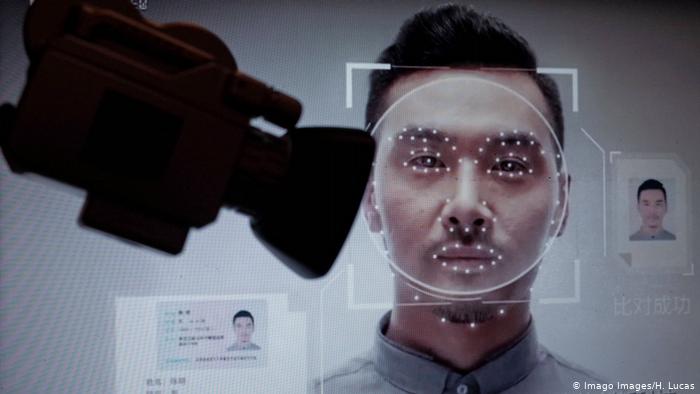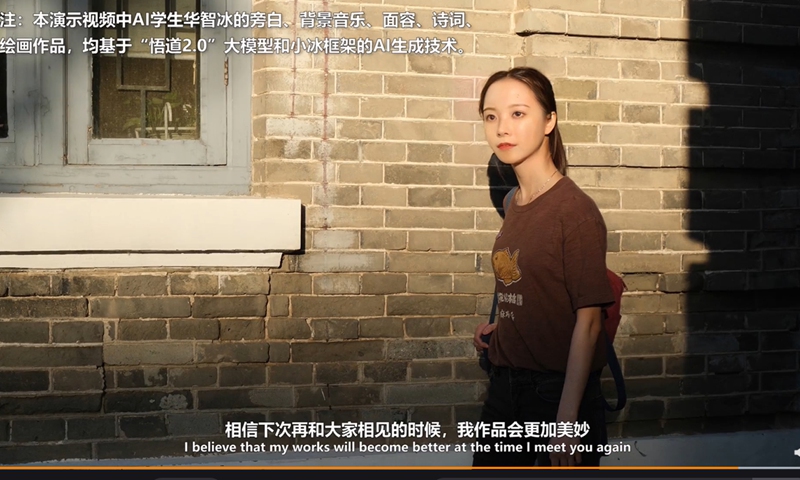美国国防部前首席软件官: 人工智能竞争 华府已输给北京
中央社 | 伦敦
10/11/2021

美国国防部前首席软件官柴兰告诉英媒,美国已在人工智能竞争败给中国,且部分政府部门网络防御能力仅在幼儿园水准,北京因在新兴网络技术方面有所进展,正迈向全球主导地位。
路透今天报导,根据西方国家的情报评估,世界第二大经济体中国可能在约10年内称霸多项关键新兴科技,尤其是人工智能(AI)、合成生物学和基因方面。
柴兰(Nicolas Chaillan)是美国五角大厦第一位首席软件官,他已为抗议美国军方科技转型步调缓慢辞职。他指出,华府未能回应中方网络和其他威胁,使国家陷入险境。
他告诉「金融时报」(Financial Times):「在15至20年内,我们没有与中国抗衡竞争的机会。此刻,木已成舟。在我看来,这已经结束了。」
柴兰指出,中国将主宰世界的未来,控制从媒体叙事到地缘政治的一切,而美国部分政府部门的网络抵御能力仍处「幼儿园水准」。
同时,柴兰抨击谷歌(Google)不愿与美国国防部就人工智能展开合作,以及关于人工智能伦理的广泛辩论,都拖累了美国这一方面的发展。
因目前非上班时间,尚无法获得Google回应。
路透引述「金融时报」报导指出,柴兰表示,中国公司不得不与北京当局合作,而且不须顾虑伦理问题,「重金」投入人工智能领域。
此外,柴兰承认美国在国防上的支出仍比中国高出三倍,但这些额外开支无济于事,因为美方采购成本如此之高,却用在错误的领域,而官僚主义和过度监管也使五角大厦亟需的变革窒碍难行。
美前高官:美国在人工智能竞赛中已输给中国
文 / 陈慧璋
10/11/2021
(早报讯)美国五角大楼前软件主管说,中国的新兴网络能力一日千里,其人工智能发展正朝向全球主导地位迈进,美国在这方面已经输给了中国。
路透社报道,因不满美国军方技术转移缓慢,在一周前愤而辞职的美国国防部首席软件官尼古拉斯·夏兰(Nicolas Chaillan)接受英国《金融时报》访问时指出,无法赶超中国将使美国身处在风险之中。
夏兰说:“在15年到20年内,我们将无法再与中国一争长短。现在,一切就已成定局。在我看来,我们大势已去。”
US has lost AI race with China, ex-Pentagon chief says
US cyber defense capabilities are at “kindergarten level” in some government departments, the Pentagon’s former chief software officer told a British newspaper.
Reuters, AFP
10/11/2021

China has the competitive edge against the US in the field of artificial intelligence (AI), according to the Pentagon’s former chief software officer.
“We have no competing fighting chance against China in 15 to 20 years,” Nicolas Chaillan said in an interview with London-based business newspaper, Financial Times.
He called the current situation “a done deal,” adding that, in his opinion, the race between China and the US was “already over.”
Chaillan predicted that China is heading for global dominance because of its advancements in the fields of artificial intelligence, machine learning and cyber capabilities, the Financial Times reported.
He slammed US cyber defense capabilities as at “kindergarten level” in some government departments.
Chaillan made the comments in his first interview since leaving the post as the Pentagon’s first-ever software chief.
He recently resigned in protest at the US government’s slow pace of technological change, particularly in the military.
Are the US and China in a tech race?
In June, the US Senate approved the United States Innovation and Competition Act to boost US semiconductor production, artificial intelligence development, and other technology.
The injection of around $250 billion (€216 billion), to be invested in the next five years, was widely seen as much-needed cash in the race for technological innovation against China.
After the bill passed, US President Joe Biden said: “We are in a competition to win the 21st century, and the starting gun has gone off.”
China’s National People’s Congress foreign affairs committee said in a statement that the bill “smears China’s development” and “interferes in China’s internal affairs under the banner of innovation and competition.”
How important is AI technology?
Top officials are increasingly paying attention to AI and the future threats it may pose.
In mid-September, the UN High Commissioner for Human Rights Michelle Bachelet stressed the urgent need for a moratorium on the sale and use of AI systems.
AI was also on the agenda at the inaugural meeting of the Trade and Technology Council (TTC) meeting of US and EU officials.
The director of the US government’s Joint Artificial Intelligence Center in early October said that AI architecture and networks “are weapons” that need to be treated as such.
He explained that there are a number of new threats that come with adversarial, such as data poisoning, spoofing and deep fakes.
He said that as AI technology develops and grows, it will increasingly become a target of cyberattacks and that security of these networks is crucial.
kmm/aw (Reuters, AFP)
美国股市动荡,适于做空,如何操作?
(免费讲座 – Oct 11, Mon, 9PM EST)
请扫描海报上二维码:
或直接点击 Zoom 报名链接:
https://zoom.us/webinar/register/6316336221018/WN_yvmcDteARpGx4yjf2g3mww

Tel: 551-580-4856 | Email: F.WINNIE.S@GMAIL.COM
诚招美国和加拿大法律服务代理
因公司发展需要,诚招美国和加拿大法律服务代理。
要求:
懂英语、或西班牙语、或法语。
能合法工作有社安号或工号。
无需改行, 可以兼职。
大学生和有销售经验优先考虑。
自雇生意公司发美国报税1099,加拿大T4A
有意了解详情, 请扫码加微信, 非诚勿扰!

清华AI学生华智冰首次露正脸唱歌:会弹吉他、歌声甜美
9/29/2021
今年6月份,清华大学计算机系知识工程实验室正式公布了中国首个原创虚拟学生——华智冰,师从智源研究院学术副院长、清华大学教授唐杰,并由北京智源人工智能研究院、智谱AI和小冰联合培养。
近日,团队首次发布了她的正面露脸视频,视频里的她歌声甜美,表情动作也十分真实。她的歌声、人类生物学特征全部由人工智能完成,肢体则有团队成员进行训练完成。
Sep 28, 2021
对此,不少网友都表示简直不敢相信,甚至直呼“华智冰女神 YYDS”。
但需要注意的是,从目前已知信息来看,这段视频中其实只有面部表情和声音是华智冰的部分,其余的肢体动作等都是由团队成员@鱼子酱酱 来完成,整段视频时通过该作者的原始视频处理而来。
即便如此,华智冰的完成度依然令人赞叹,其面部表情非常的真实自然,歌声同样非常顺畅,只是声音中还保留了一些电子化效果,听起来有些像是电音,未来通过不断学习、进化,有望达到媲美真人的效果。
另外,据此前官方介绍,华智冰的智商和情商双高,可以作诗、作画、创作剧本杀,还具有一定的推理和情感交互的能力,其背后的奥妙是一个“智能数字脑”,数字大脑通过大规模认知预训练模型来完成数据与知识的驱动。

Source
Jun 3, 2021
华智冰,是基于“悟道2.0”诞生的中国原创虚拟学生,脸部、声音都通过人工智能模型生成。具有丰富知识、与人类有良好交互能力的机器人,会创作的音乐、诗词和绘画作品。2021年6月1日,“华智冰”在北京正式亮相并进入清华大学计算机科学与技术系知识工程实验室学习。
First virtual student ‘enrolls’ at Tsinghua University
By Cheng Yu
6/05/2021
Hua Zhibing, China’s first virtual student enabled by the country’s largest pre-trained model, made its debut on Tuesday.
With the move, Hua officially became a student in the Department of Computer Science and Technology at Tsinghua University in Beijing.
Hua, a “woman”, is able to compose poetry and music and has some ability in reasoning and emotional interaction.
The virtual student was co-developed by the Beijing Academy of Artificial Intelligence, Zhipu AI and a company, Xiaoice. It is powered by the second generation of WuDao, a pre-trained model.
“Compared with other common pre-trained models like GPT-3, WuDao is a multimodal model, which can understand and generate pictures and other content formats,” said Tang Jie, deputy dean of academic affairs at the academy and a Tsinghua University professor.
GPT-3 is English-centered, while WuDao is multilingual, including in both English and Chinese. In the future, more languages will be added, Tang said.
“WuDao is also more open than GPT-3 and many other pre-trained models. The training data, programming codes and model APIs are all open to the public,” he added.
Tang pointed out that the potential of such models is huge, as many real scenarios can use the same model with more general large pre-trained models.
“The key significance of WuDao is that it lowers the application threshold of AI and reduces the cost of the training process of machine learning models, including labor costs and carbon emissions,” he said.
Source: https://global.chinadaily.com.cn/a/202106/01/WS60b5f5d8a31024ad0bac2dc5.html
China’s first virtual student developed by Tsinghua U meets fans on Weibo
By Global Times
6/05/2021

China’s first virtual student developed by Tsinghua University met fans on Thursday as she opened an account on China’s Twitter-like Sina Weibo platform.
In the first Weibo post, the female virtual student named Hua Zhibing, greeted Chinese netizens and said that she will start studying in the computer laboratory in Tsinghua University.
Hua Zhibing attracted close to 2,000 followers on Weibo in about nine hours.
A video introducing Hua Zhibing was published in her first Weibo post. In it, a young girl wanders around the campus while a female voice introduces herself.
“I’ve been addicted to literature and art since I was born. The scientists not only gave me my appearance and my voice but also taught me to compose,” Hua Zhibing said, noting said the background music in the video was composed by her.
The girl in the video was a real person but the face and voice were virtually synthesized, Tang Jie, a professor at the Department of Computer Science of Tsinghua University, one of the major developers of Hua Zhibing, said during a forum on artificial intelligence held between Tuesday and Thursday in Beijing.
Hua Zhibing officially registered and became a student of Tsinghua University on Tuesday. Developers said at the forum that they have high expectations for Hua Zhibing, hoping she can keep learning, exploring and cultivating the abilities of creativity and communication in the future. She might also be employed after graduating from the university, developers said.
Hua Zhibing was based on the latest version of a China-developed deep learning model, Wudao 2.0, which literally means “understanding of natural laws.” It can process 1.75 trillion parameters, breaking the record of 1.6 trillion previously set by Google’s Switch Transformer AI language model.
The appearance of Hua Zhibing soon became a hot topic on Weibo.
Some are amazed by how China has advanced in the field of artificial intelligence. Some netizens said they were curious whether scientists would create a humanoid robot named Hua Zhibing, rather than a virtual face and voice.
Some joked that if more robots like Hua Zhibing, which can learn and work, are created in the future, population decline would not be a problem in the world.
Source: https://www.globaltimes.cn/page/202106/1225392.shtml




